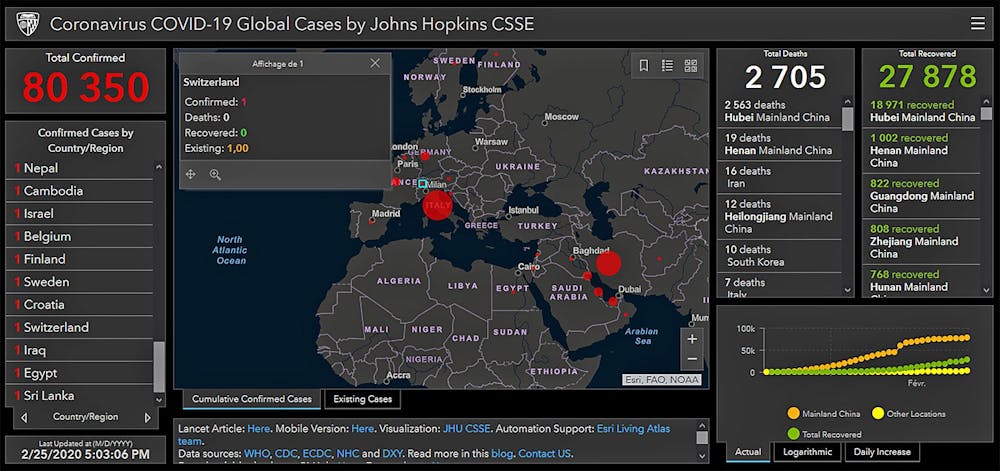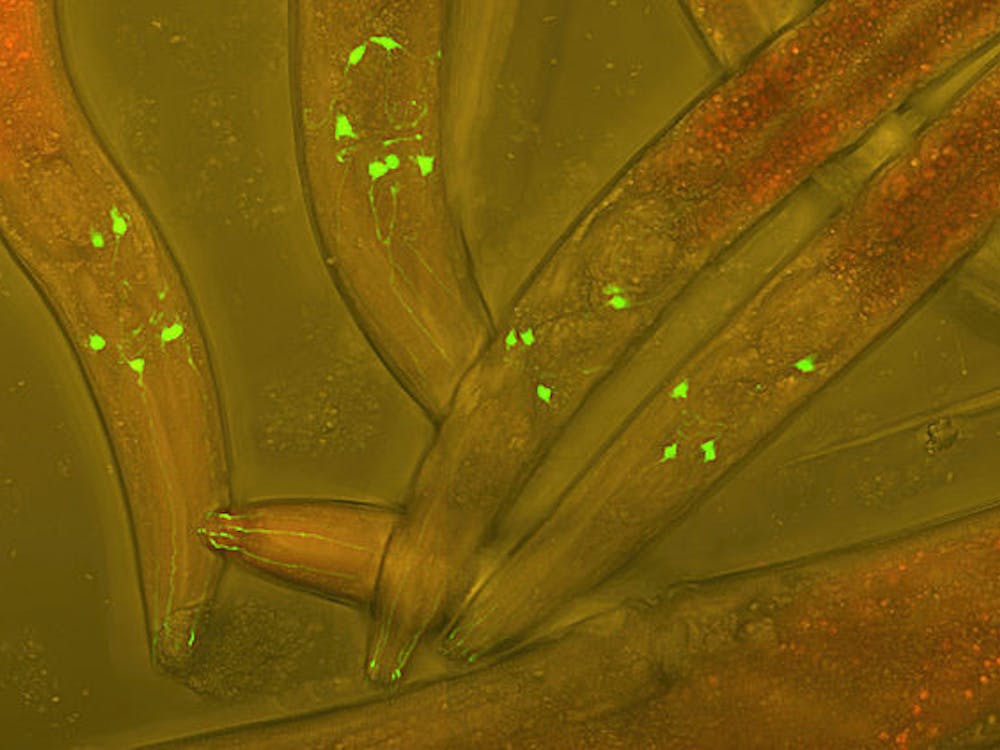After three years of round-the-clock work, the Hopkins Coronavirus Research Center (CRC) announced that it will no longer collect and report data on the COVID-19 pandemic on March 10. This decision comes after consistent declines in state-level pandemic data reporting and the federal government’s increased data capabilities.
Beginning with its launch on Jan. 22, 2020, the COVID-19 dashboard has served as a cornerstone in the public health response to the pandemic. It offers a host of visualizations on all aspects of the disease, including numbers of infections, deaths, testing, contact tracing and vaccinations alongside a publicly available data set.
The dashboard, or “Hopkins map,” was created by the Alton and Sandra Cleveland Professor Lauren Gardner in the Department of Civil and Systems Engineering and graduate student Ensheng Frank Dong. As the need for readily available public health data increased, President Ronald J. Daniels expanded the effort into the interdisciplinary CRC, which launched on March 3, 2020.
Gardner shared insights on the creation of the dashboard in an email to The News-Letter.
“It started off as a solitary pursuit by me, Frank and others in the [Center for Systems Science and Engineering] before it became clear that SARS-CoV-2 was going to become a pandemic and internet traffic soared. Together with the Applied Physics Lab we rapidly created the most comprehensive publicly available data set on the pandemic in the [U.S.] and around the world, filling a void left by governments overwhelmed with responding to the novel disease,” she wrote. “To date, I have remained responsible for the global map and data collection underlying the map.”
As the pandemic escalated, the CRC took on staff members from departments spanning the breadth of the University. The team includes members from the Applied Physics Laboratory, Sheridan Libraries, Bloomberg Center for Government Excellence, the Center for Health Security and the Bloomberg School of Public Health. They all worked to provide expert advice and strengthen the dashboard, ensuring that it could withstand the amount of traffic directed at it.
“We did not expect to have the impact we ended up having,” Gardner wrote. “We realized quickly we had an ethical responsibility to do all we could to expand the operation to maintain the trusted position it had attained as a vital global resource. That’s why it was so important for every division at [the University] to get involved.”
Since the website’s launch, the dashboard has been viewed more than 2.5 billion times globally.
In an email to The News-Letter, CRC Project Lead Lainie Rutkow asserted that the CRC highlights the importance of research universities in addressing national crises.
“As a university, we were able to share our collective expertise with the world through the CRC in close to real time,“ she wrote. “In retrospect, none of us could have anticipated the global resource that the CRC would become, but the success of the CRC in scaling up an interdisciplinary rapid response to the pandemic demonstrates the critical role research universities can play in global crises.”
In addition to online resources, the CRC issued weekly newsletters that included expert analysis and biweekly briefings on the state of the pandemic. Due to its profound impact, the CRC was named one of Time magazine’s “Top 100 Inventions of 2020.”
Rutkow expressed her pride that the initiative was spearheaded by a team of women who supported each other throughout the pandemic.
“We watched each other’s babies turn into toddlers via our zoom screens as the work progressed, and we routinely scheduled strategy sessions around bedtimes for our kids. Some of us even became new moms while we were running this 24/7 operation,“ she wrote. “We also faced our own family’s encounters with the virus and supported each other with deliveries of rapid tests, soup and other resources as we continued the work.”
As data collection concludes, both Rutkow and Gardner note that the impact of the CRC is not ending. The data from Jan. 22, 2020 to March 10, 2023 will remain fully and freely accessible online.
“The data is already informing multiple research projects across a broad range of disciplines, including the effects of climate and transportation systems as well as the effectiveness of medications and vaccines.” Gardner wrote. “The only thing that’s being discontinued is live data collection. And if there’s a need to reactivate this operation, we are ready to do so given the knowledge and best practices we have developed over the past three years.”





